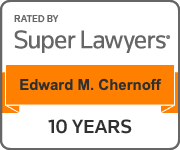Miranda, Confession, and Coerced Statements: How Texas Courts Evaluate Interrogation Evidence in Capital Cases
October 27, 2025

When your freedom and your life are on the line, every word spoken in a police interrogation matters. Texas interrogation evidence often plays a crucial role in capital cases, where prosecutors rely heavily on confessions and statements made during questioning. But what happens when that statement was made under pressure, fear, or confusion? Texas courts take these issues seriously, especially when Miranda rights, confessions, and coerced statements come into play.
Understanding how Texas courts evaluate interrogation evidence in capital cases can make the difference between a conviction and a dismissal. At Chernoff Law, we have defended countless clients accused of serious crimes, including capital murder, and we know how to challenge unlawful interrogation tactics to protect your rights.
Understanding Miranda Rights in Texas
Miranda rights stem from the landmark U.S. Supreme Court case Miranda v. Arizona (1966), which requires police to inform suspects of their right to remain silent and their right to an attorney before custodial interrogation begins. In Texas, these rights apply when:
- You are in custody, meaning you’re not free to leave; and
- Law enforcement begins interrogation, or direct questioning designed to elicit a confession.
If police fail to properly read your Miranda warnings or continue questioning after you’ve asked for an attorney, any statements you make may be inadmissible in court. This is often the first defense challenge raised by experienced criminal defense lawyers in capital cases.
What Makes a Confession Voluntary or Coerced
A confession must be voluntary to be admissible. Under Texas Code of Criminal Procedure Article 38.21, a confession cannot be used unless it was made freely and voluntarily, without compulsion or persuasion.
Texas courts look at several factors to decide if a statement was coerced:
- Length and intensity of the interrogation
- Promises or threats made by officers
- Physical or psychological pressure
- Age, education, or mental state of the accused
- Access to an attorney or family contact
For example, if a suspect is questioned for hours without rest, denied food or water, or told that cooperation will lead to leniency, a court may rule the confession involuntary.
In capital cases, where the stakes are life or death, judges often scrutinize confessions even more carefully. One coerced statement can lead to wrongful conviction, which is something Texas courts are increasingly cautious about preventing.
How Texas Courts Review Interrogation Evidence
When a confession or statement is challenged, the judge must hold a “Jackson v. Denno” hearing, named after another U.S. Supreme Court case, to determine whether the statement was made voluntarily.
At this hearing, the defense can present:
- Testimony from the defendant describing the interrogation;
- Video or audio recordings (required in most Texas felony interrogations); and
- Expert testimony on coercive police practices or psychological manipulation.
The prosecution then bears the burden of proving that the confession was voluntary beyond a reasonable doubt. If the judge finds the statement was coerced or obtained in violation of Miranda rights, it cannot be presented to the jury.
Similar Post: How Pretrial Discovery Reforms in Harris County Impact Your Defense
The Role of Video and Audio Evidence in Modern Interrogations
Texas law now requires that most custodial interrogations in serious felony cases be recorded to ensure transparency and protect defendants’ rights.
However, even with recordings, issues can still arise. For example, police may start recording after a suspect has already made incriminating statements, or they may pause the recording during key moments. Skilled criminal defense attorneys know how to identify these gaps and argue that the statement was obtained unlawfully.
At Chernoff Law, we often work with experts in police procedure and psychology to analyze audio and video footage, identify signs of coercion, and build strong motions to suppress improperly obtained statements.
Why These Issues Matter So Much in Capital Cases
In Texas, capital offenses, such as capital murder, carry the most severe penalties, including life imprisonment or the death penalty. That means every piece of evidence, especially a confession, can determine the outcome.
An involuntary confession doesn’t just violate your rights; it can completely change the trajectory of your case. Once a jury hears a confession, even if later deemed unreliable, the damage can be difficult to undo. That’s why your defense attorney must act quickly to challenge any questionable interrogation evidence before trial.
How a Skilled Texas Criminal Defense Attorney Can Help
Challenging a coerced or improperly obtained confession isn’t just about pointing out mistakes. Rather, it requires a strategic legal approach and deep knowledge of both Texas and federal law. At Chernoff Law, we:
- Thoroughly review interrogation recordings and transcripts;
- File motions to suppress illegally obtained statements;
- Cross-examine officers on their interrogation methods; and
- Work with experts who can testify on coercion or mental vulnerability.
Our firm’s founder, Ed Chernoff, has decades of experience defending complex and high-stakes criminal cases across Texas. When your freedom is at stake, you need a lawyer who understands both the science and strategy behind police interrogations.
Similar Post: Accused of a Violent Crime in Texas? Read This Before Talking to Police
Protecting Your Rights from the Start
If you or a loved one has been charged with a capital offense or believe you made a statement under coercion, it’s critical to act fast. The sooner an attorney can review the circumstances of your interrogation, the better your chances of suppressing harmful evidence before trial.
Remember: police are trained to build a case, not protect your rights. You need someone in your corner who knows how to level the playing field.
Facing a Capital Charge in Texas? Call Chernoff Law Today
At Chernoff Law, we know how Texas courts evaluate Miranda, confessions, and coerced statements in capital cases and we know how to fight them. Our team is committed to defending your constitutional rights, challenging unlawful police tactics, and protecting your future.
If you believe your confession was coerced or your rights were violated during interrogation, don’t face it alone. Call Chernoff Law today at 713-222-9141 or fill out our online contact form to schedule a free and confidential consultation. We defend clients throughout Texas, including Houston, Cypress, Richmond and Pasadena.
Disclaimer: This blog is intended for informational purposes only and does not establish an attorney-client relationship. It should not be considered as legal advice. For personalized legal assistance, please consult our team directly.
























Reviews Matter
★
★
★
★
★
★
★
★
★
★
★
★
★
★
★
★
★
★
★
★
